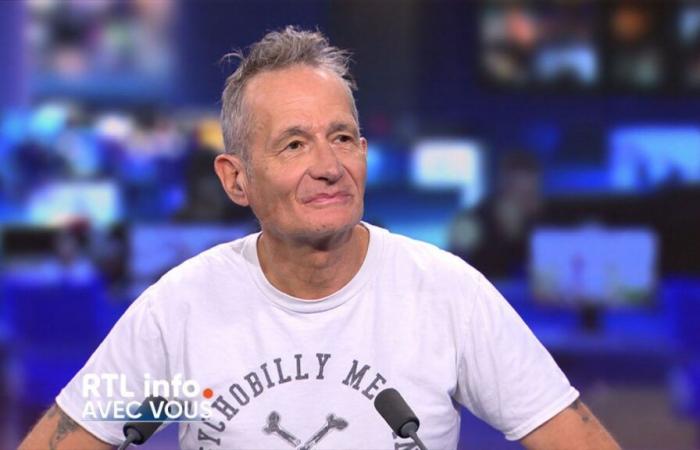In his book “Worker Punk”, Didier Wampas looks back on a life marked by a double identity: that of a punk artist on stage and an electrician worker at the RATP. An atypical trajectory where musical passion and professional reality have intertwined for three decades.
The title of Didier Wampas’ book, The Working Punk, perfectly reflects who he is: “I was a punk and a worker at the same time”. A journey that took shape through chance. After a baccalaureate in electrical engineering, Didier Wampas worked for a year in a factory before joining RATP as an electrician. At the same time, he was living his musical dream, playing in bars, squats and producing 45s without much money: “At the beginning, we didn’t make any money. We toured bars. Music didn’t bring in anything, so we had to work hard. But when I understood how showbiz worked, I didn’t want to ‘enter there’.
Juggling work and passion
For thirty years, Didier Wampas reconciled his two lives, juggling between his schedules at RATP and his rehearsals or concerts: “I worked three shifts. When I worked in the afternoon, I rehearsed in the morning, and vice versa. For the concerts, I made arrangements: leave, without pay, swaps with colleagues”.
This organization allowed him to remain faithful to his artistic freedom and his refusal of showbiz compromises: “For me, punk was total freedom. Make the music you want, think the way you want, be different. That was punk.”.
An unexpected musical vocation
However, music did not seem obvious in his youth. Growing up in a little musical household, it was at ten years old that he had his first shock: “I heard ‘Who Will Know’ by Mike Brant. It shocked me. Before that, music didn’t do anything for me. But that day, it touched me”.
His artistic path, however, was by no means mapped out. As a lonely teenager, he found in punk a belonging that he lacked: “I didn’t have any friends, I didn’t play football, I didn’t feel good about myself. Belonging to a group was very important to me.”
Refusal of showbiz and love of small stages
Despite successes like Little Girl or his song about Manu Chao, Didier Wampas has always preferred small rooms and the intimacy of concert cafés:
“Large tours are not my thing. It’s too impersonal, we’re too far from the people”.
By retracing his journey in “worker punk”, Didier Wampas wants above all to inspire: “I want to show kids, everyone, that it’s possible to live your life, to do what you want. My journey is a waking dream, and I refuse to believe that it’s not true”.
Didier Wampas singer Music








